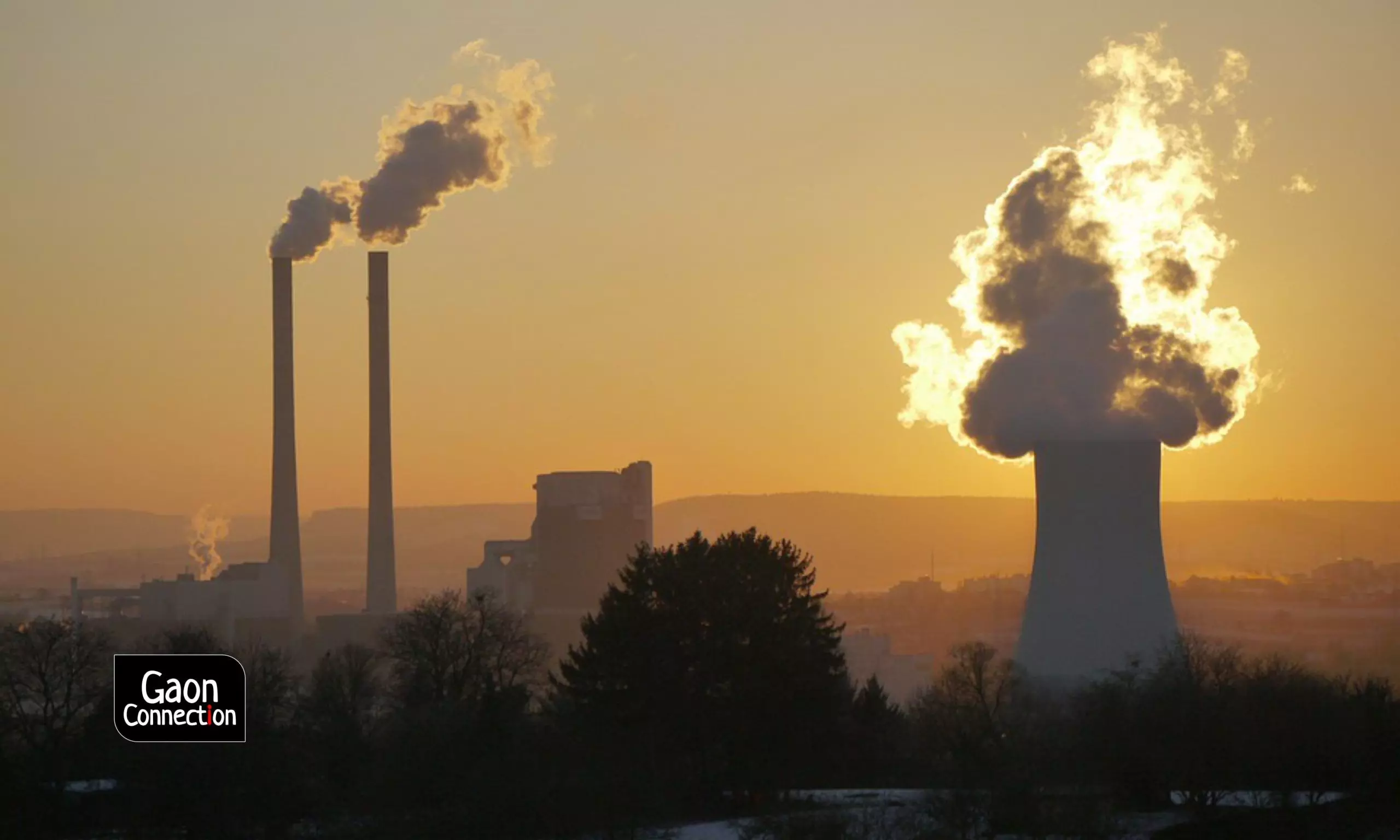Immediate action required to limit global warming to 1.5°C, need to halve emissions by 2030: IPCC report
Limiting global warming will require major transitions in the energy sector, the third instalment of the IPCC’s sixth assessment report noted. It also added that accelerated and equitable climate action in mitigating and adapting to climate change impacts is critical to sustainable development. Details here.
 गाँव कनेक्शन 5 April 2022 12:22 PM GMT
गाँव कनेक्शन 5 April 2022 12:22 PM GMT

Photo by: Pixabay
There is increasing evidence of climate action but without immediate and deep emissions reductions across all sectors, limiting global warming to 1.5°C is beyond reach, revealed the third instalment of the recently released sixth assessment report of the United Nations' Intergovernmental Panel on Climate Change (IPCC).
The report that was released on April 4 noted that in 2010-2019 average global greenhouse gas emissions were at their highest levels in human history, but the rate of growth has slowed.
"We are at a crossroads. The decisions we make now can secure a liveable future. We have the tools and know-how required to limit warming , " said Hoesung Lee, the IPCC Chair.
Adding more to this, Navroz Dubash, a Professor at Delhi's Centre for Policy Research said, "The unavoidable reality is that human emissions over this past decade have been the highest in history. Limiting warming to 1.5 degree C is out of reach without immediate and substantial short term measures by 2030, in addition to longer term efforts to reduce emissions to net-zero."
The report also noted that accelerated and equitable climate action in mitigating and adapting to climate change impacts is critical to sustainable development.
It pointed out that mitigation in industry can reduce environmental impacts and increase employment and business opportunities. "Electrification with renewables and shifts in public transport can enhance health, employment, and equity," the report suggested.
Stating how climate and development cannot be seen as separate issues, Dubash added "Development choices about urban, energy and land systems shape can shift development pathways toward sustainability. And, because of growing impacts, sustainable development isn't possible without accelerated mitigation and adaptation."
The Summary for Policymakers of the IPCC Working Group III report, Climate Change 2022: Mitigation of climate change was approved on April 4 2022, by 195 member governments of the IPCC and was written by 278 authors from 65 countries.
"Major transitions required in energy sector to limit global warming"
The report has emphasised that limiting global warming will require major transitions in the energy sector.
"This will involve a substantial reduction in fossil fuel use, widespread electrification, improved energy efficiency, and use of alternative fuels such as hydrogen," the press release of the report read.
It also pointed out that cities and other urban areas also offer significant opportunities for emissions reductions. The recommendations included lower energy consumption, electrification of transport in combination with low-emission energy sources, and enhanced carbon uptake and storage using nature.
The report focused on how agriculture, forestry, and other land use can provide large-scale emissions reductions, remove and store carbon dioxide at scale.
"However, land cannot compensate for delayed emissions reductions in other sectors. Response options can benefit biodiversity, help us adapt to climate change, and secure livelihoods, food and water , and wood supplies," the press release stated.
Stress on significance of the next few years
The report's assessment highlighted that limiting warming to around 1.5°C (2.7°F) required global greenhouse gas emissions to peak before 2025 at the latest, and be reduced by 43% by 2030. It added that methane would also need to be reduced by about a third and even if that happens, it is almost inevitable that the temperature threshold would be temporarily exceeded but it could return to below it by the end of the century.
It also observed that the global temperature will stabilise when carbon dioxide emissions reach net zero.
"For 1.5°C (2.7°F), this means achieving net zero carbon dioxide emissions globally in the early 2050s; for 2°C (3.6°F), it is in the early 2070s," the report stated.
It also outlined that as per this assessment, limiting warming to around 2°C (3.6°F) still requires global greenhouse gas emissions to peak before 2025 at the latest, and be reduced by a quarter by 2030.
#enviroment ipcc report energy just transition sustainable development #story
More Stories




